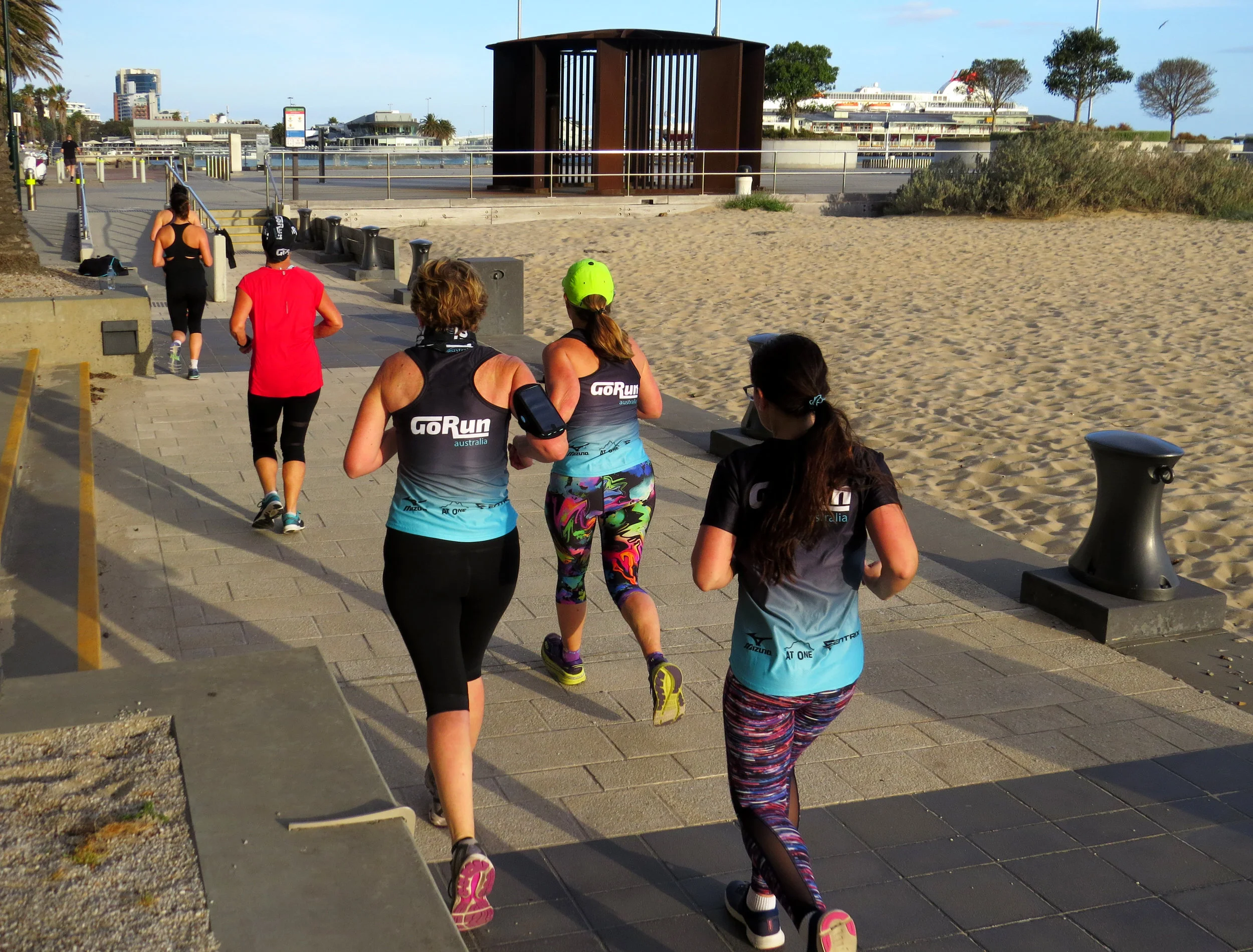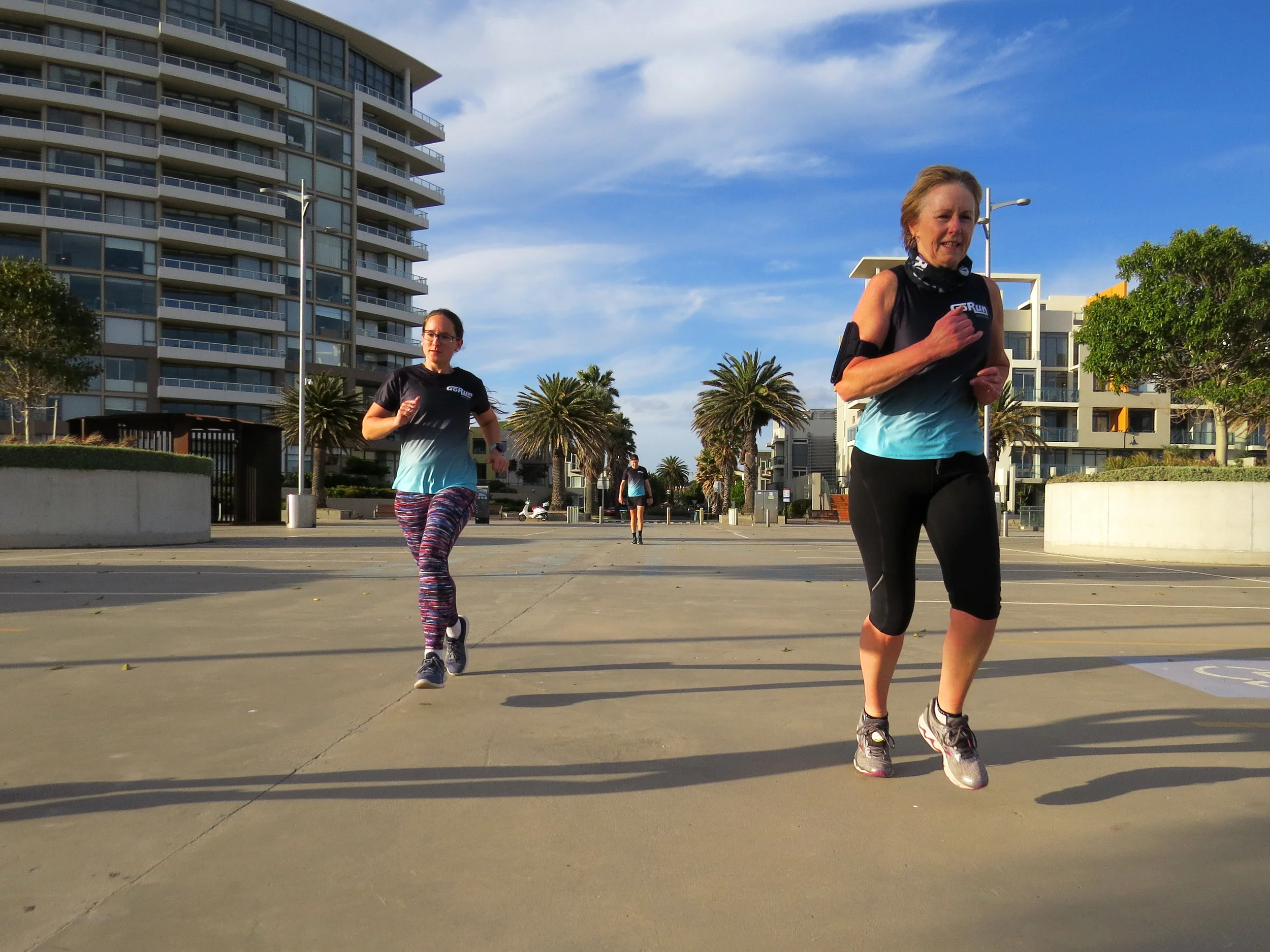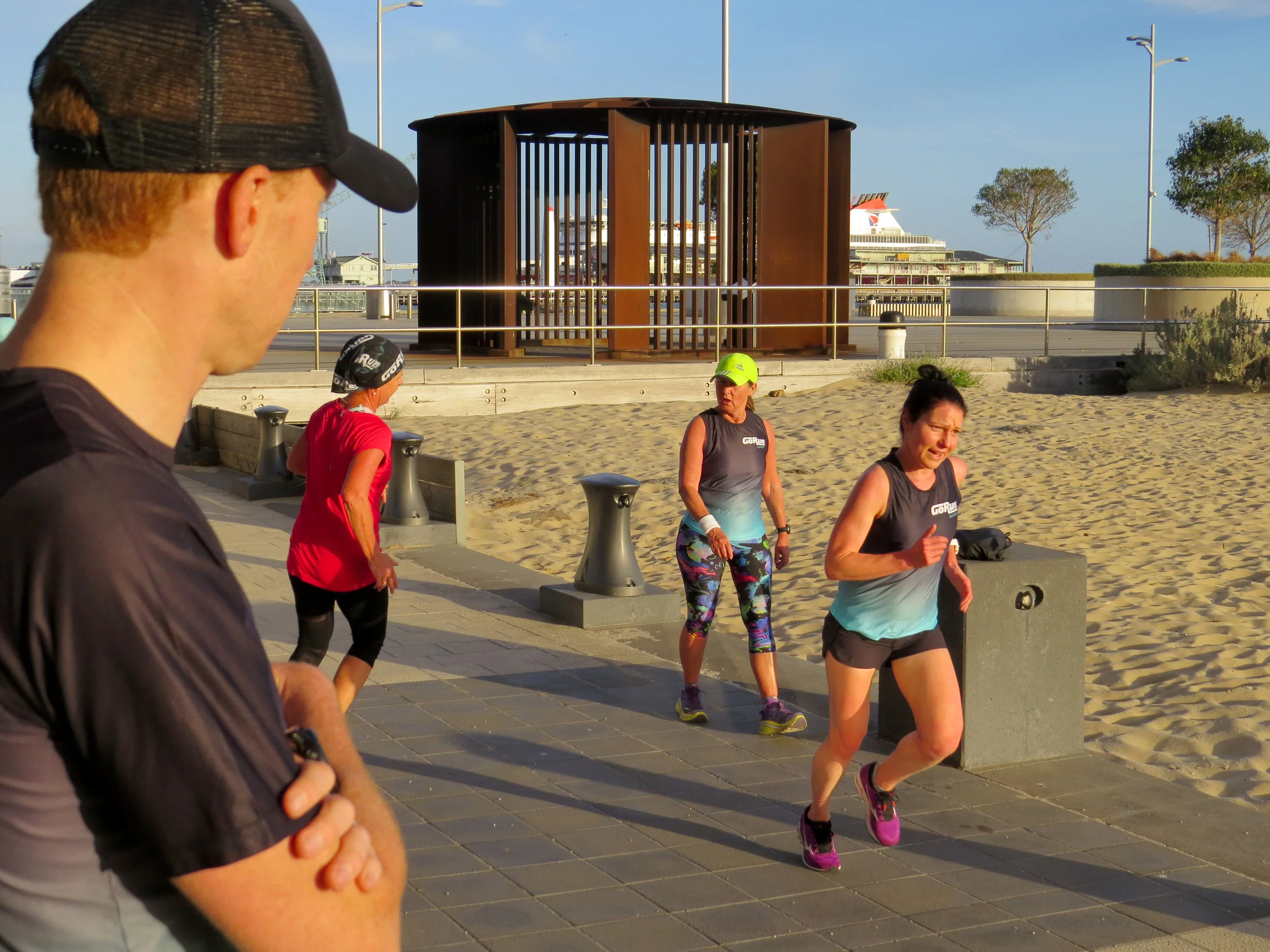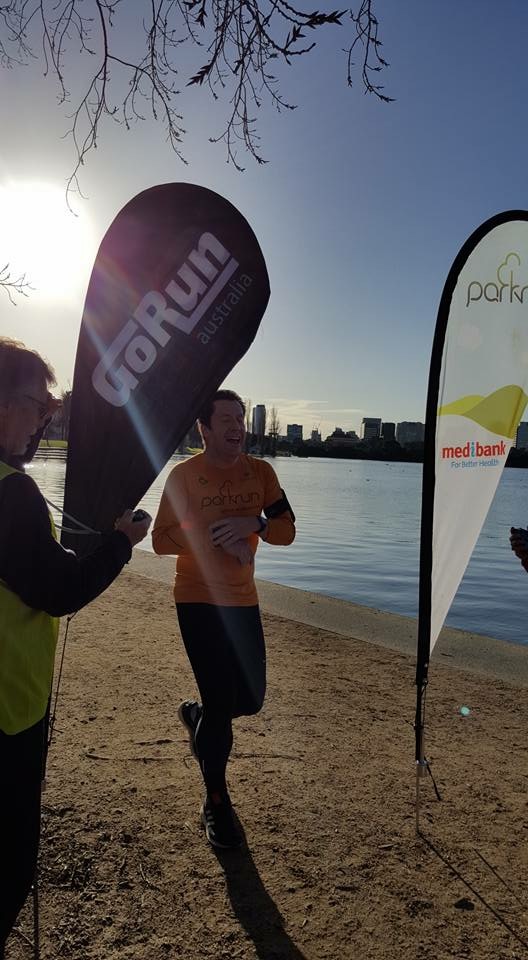We're all still learning. Even the coaches
Even coaches still benefit from being coached. Whilst they are busy sharing their knowledge with others and helping to structure their training, increase accountability and get results, they too, can do with help from time to time. There are coaches out there who are former athletes, there are coaches who have never been athletes and there are coaches like myself, who still have athletic ambitions. There are plenty of pro’s and cons to each situation, but no matter what a coach' own personal experience in the sport, few coaches would claim that they know it all. In fact, if they do claim to know it all, I would say that they are deluded.
How to find the right running group for you...
Our Run Group in Port Melbourne has been going for a couple of years now and during that time, I have been asked a lot of questions both as the coach and as the organiser. There are certainly themes to these questions and one of the big ones is around ‘fear.’ That fear is usually shown in the person not wanting to be the “worst" or slowest person in the group. One new arrival even messaged me before their first session to say, “I've never joined a running group before. I'm probably going to be way behind even the slowest person there.”
How to choose the right next event for you
The post race break usually means a quadrupling of our food and alcohol intake (particularly in ‘fat week’), accompanied by plenty of reflections on the race that has gone, discussions about what we enjoyed, where you can improve, and questions about what race might be next. This down time and reflection period is really important. It allows for recovery both mentally and physically, but it usually isn’t long before the ‘What’s next?’ question rears its head… Cue animated predictions, planning sessions and discussions with friends for races that we want to sign up for.
With so many events on the running calendar these days and entry costs going through the roof, it is becoming tricky (and expensive) to decide which event is actually the right event for you.
What’s next?
One of the most popular questions that we ask other runners is the question of, “what’s next?”
I’m going to be honest and declare that I have a love / hate relationship with this question. This stems from the moment I finished my 17th and final marathon of 2017, after running races around Australia to raise money and awareness for the Baker Heart and Diabetes Institute. I had put myself through a lot physically and emotionally that year, particularly for that final marathon. I was relieved and elated to be finished the running and fundraising challenge, but within 2 minutes of finishing, I was being asked, "what’s next?" For some reason, it felt almost criminal to take anything away from that moment and from the sense of achievement, by simply moving on. Don’t get me wrong, I already knew what was next for me, but for some reason I reacted against the assertion that there needed to be something next and that I couldn’t simply enjoy this particular moment for what it was.
How to not screw up your marathon taper
For those of you running at Melbourne Marathon Festival on 13 October, congratulations on getting this far in your training. You will mostly have gone through the tough, long preparation for the 10km, half marathon or marathon distances and are now entering (or about to enter) a taper period, to freshen you up for race day. This is a weird and wonderful couple of weeks where many people can screw their races, so I thought it would be useful to run through five 'anti-screw up' tips with to help keep you focused and ready to roll when you get to the start line.
Keep it Simple: Learnings from the Brownlees
Outside of running, I have an interest in triathlon. Yes, I know it includes running, but its only a third of the whole package. Having trained as a triathlete and having a triathlon coach has in turn taught me a lot about my own running, particularly in the areas of overall aerobic fitness, recovery and balancing a hectic training schedule.
Two of the most prominent triathletes on a global stage over the past 10 years are actually brothers, Alistair and Jonny Brownlee.
How to stop digging and start recovering
Lots of runners are keen to do the physical running that forms the bulk of their training, but not so keen to get the right amount of rest and recovery that will actually enable them to run at their best. Unfortunately this is an all too common approach that many recreational runners as they dig themselves into physical holes or repetitive cycles of injury, which could have been avoided through adequate rest and recovery.
Given that we are coaching and running in the ‘endurance sports’ space, the number of hours spent training and the subsequent stress that we on our bodies, is high. As a result, we have got to make sure that we recover adequately and give something back to our bodies.
So what can we do ourselves to help our own recovery?
The Last Mile: How to Stop Fading and Finish Your Runs Stronger
One of the key things that I try to instil into the runners that I coach, is to "finish strong.” They are two simple words that may not seem like much when written into a training plan, but they make an enormous difference to how you run.
To show you what I mean, take a second to think about the different feelings in these two scenarios…
What to do when you hit a parkrun rut...
It’s probably not a very politically correct thing to say, but yes sometimes you can fall out of love with parkrun. Having done over 150 parkruns, I can very safely say that the vast majority have been hugely enjoyable experiences and I would not trade my Saturday morning jaunt around the lake for much else. I have dressed up, ran with no shoes, come first, come last, plateaued, PB’ed, paced people, raced people and most things between! However, like many parkrunners, there have been times when my motivation has dipped and you sometimes just fall out of love with it for a while. Now, I am not a doctor but I am going to diagnose this as 'hitting a parkrun rut.'
So when this awful ‘rut' strikes, what can you do?!?
Shin Splints: What are they and how to treat them?
Ask most runners about injuries and at some point they will talk about shin splints. For many beginner runners in particular, this injury is the one that stops them running and stops them from gaining that all important consistency. As a coach I have seen this injury crop up a few times, so I decided to ask our resident physio, Sally Maple from Port Melbourne Physio and Pilates to give me some expert advice on shin splints, what they are, why they occur and how we can treat them.
So what are shin splints?
What would you ask an athlete you admire?
I’ve often wondered if I was stuck in an elevator with an athlete that I really admired, what would I ask them?
Recreational athletes are often fascinated by the habits and lives of elites and professional athletes. How many hours do they train? Do they do strength training? Who are their idols? What do they eat? Do they drink alcohol?
It’s not very often you get the opportunity to chat to these people and ask these types of questions, so when Vanessa Murray, a former-professional Ironman triathlete from New Zealand agreed to sit down and chat with me over a juicy burger in Albert Park, I was really excited to try and de-mystify a few things...
How to overcome “I’m not a runner” syndrome.
As a running coach, I hear the words, "I’m not a runner” more often than you might think. In fact, it is one of the most common phrases that I hear amongst people getting back into their running or getting started on their running journey for the first time.
As far as I’m concerned, if you run, you are a runner. Whether you are fast or slow, whether you run one minute, once around the block, or one hundred kilometre ultra marathons, you are still a runner.
How to know if you are really running ‘easy.'
The runners I coach are more likely to see the words ‘easy,' 'medium' and ‘hard’ in their training plans than to see specific paces. These are the three main efforts or intensities that I use in my coaching, as well as 'Race Effort'. Of course there is a place for more paces, efforts and measurements, but in a world where we are inundated with so much information and so many metrics (that we don’t understand!), I prefer to keep things simple.
How to stay on top of your marathon training even when you travel for work
Meet Scott (aka Dr. Scott). Scott ran the Gold Coast Marathon with guidance and coaching from GoRun. Running one marathon is impressive. At the time of writing, Scott had run 7 marathons, which is really impressive. Running his fastest of all seven, by 73 seconds is super impressive, but none of this comes even close to Scott’s real story….















